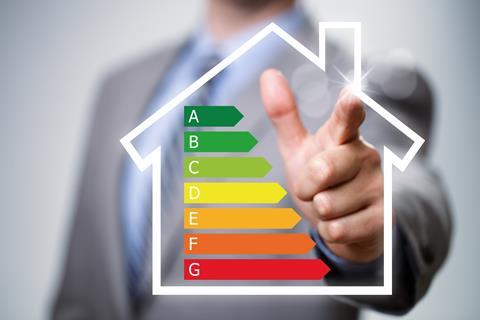Advisor wants shelf life of certificates halved and metrics reformed to more accurately reflect the performance of buildings
The shelf life of an energy performance certificate (EPC) should be halved to five years, the �ڶ����� Research Establishment (BRE) has recommended.
EPCs are currently valid for up to a decade, meaning that someone renting or buying a home could be supplied with ratings which are out of date.
The BRE said there was a “compelling argument” for more regular updates of the certificates to ensure that homeowners, occupiers and other EPC users have accurate information on the current condition of properties.

The proposal was among a raft of recommendations in a new BRE report calling for reforms to the way EPCs work to encourage the decarbonisation of homes.
The construction science advisor criticised the current ratings on the certificates for energy efficiency and environmental impact as depending on cost and carbon factors which can “vary significantly over time and are not in the control of the homeowner”.
It recommended a rethink of the metrics used on the certificates to focus on building fabric efficiency and heat loss to prompt householders into taking action on installing insulation.
The BRE also wants more of the detail collected in EPC ratings to be made public so it can be used to plan energy efficiency work, while respecting privacy and data protection.
Homeowners can currently opt out of their EPC data being made publicly available from the register, while survey data is costly to collect.
The BRE said making full use of the data in EPCs would make it easier to pinpoint the best energy efficiency improvements in hard-to-treat properties.
Currently, just 5% of people report taking action on improving the energy efficiency of their property based on information from EPCs, according to the BRE.
It recommended the creation of an integrated online service to enable an “easier customer journey” from the EPC information to advice and support on taking action.
The report said a strengthened online service could provide the official certificate data with a set of metrics of performance, based on the asset-rating, standardised, assessment of the home.
BRE chief executive Gillian Charlesworth said: “EPCs cover 60% of UK homes and are a key source of information used in planning retrofit programmes and in government policies, but too often home buyers and sellers see the certificates as just a bureaucratic necessity.
“With targeted reforms, the government can ensure the EPC can really achieve its potential, as a trusted starting point for advice and information on how we can all make our homes better.”
Last year prime minister Rishi Sunak scrapped plans to require all rental properties to meet a minimum EPC rating of C by 2028, leading to a reduction in demand from landlords for retrofit work.
In a report by banking firm Lloyds, 52% of landlords said they were less likely to invest in energy efficiency improvements in the future compared to before the U-turn.


























No comments yet